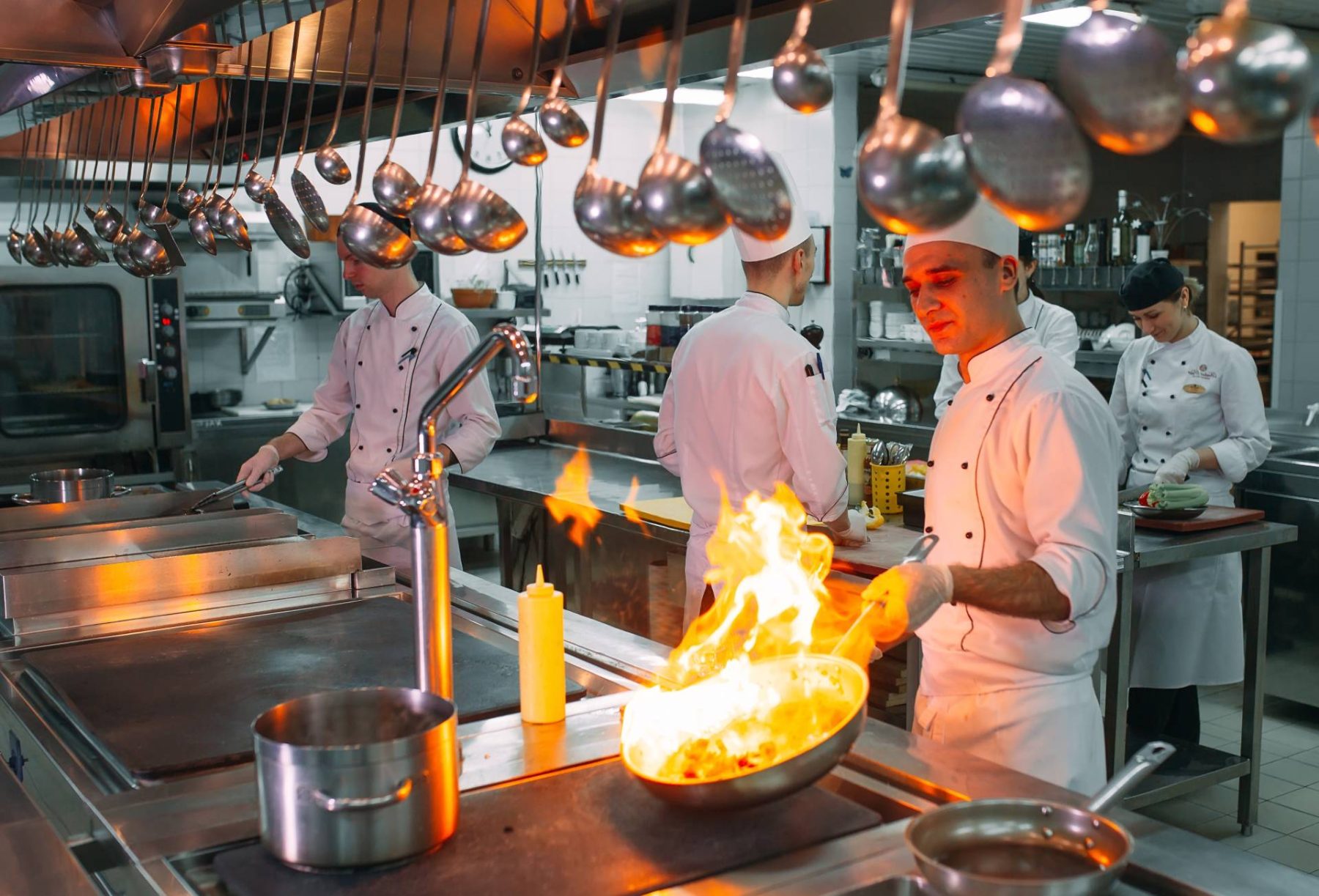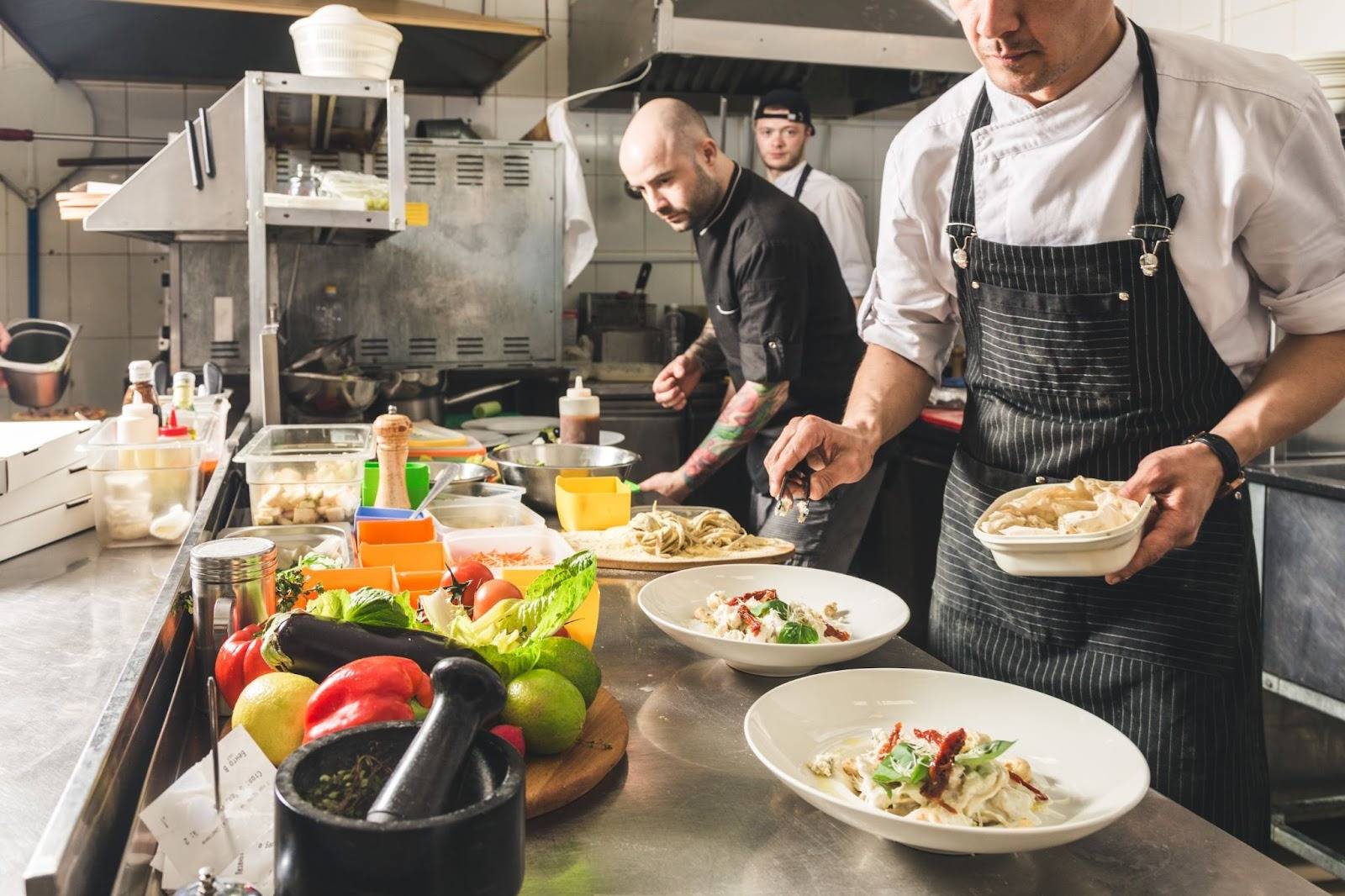
If you’re preparing to earn your food handler certificate in Canada, you have two main choices: taking your food handler course online vs in-person.
Both formats teach the same essential skills: safe food handling, hygiene, and contamination prevention. But how you take the course can affect how fast you’re certified, what it costs, and how easily it fits into your schedule.
Below, we’ll compare food handling courses online vs in-person, explore key differences between in-person and online food safety courses like SafeCheck® Learning’s, and help you decide which option is best for your needs.
TL;DR: Differences Between Online and In-Person Food Safety Courses
| Online Food Handler Course | In-Person Food Handler Course | |
| Format | Self-paced online modules | Classroom instruction |
| Average Length | ~6 hours, flexible schedule | 1 full day (5–8 hours) |
| Exam Type | Online proctored | Written, supervised |
| Retakes | Usually unlimited | Often requires rebooking |
| Languages | Up to 25+ | Usually English only |
| Certificate Delivery | Same-day digital download | Often 3+ business days |
| Typical Cost | $25–$100 (SafeCheck® Learning: $24.88) | $50–$150 depending on provider |
| Best For | Flexible, fast certification | Group or instructor-led learning |
| Example Course | SafeCheck® Learning Food Safety Certification | Food Safety Leaders In-Class Food Safety Training |
In short, both options are valid and government-approved. But for most learners, online training, especially through SafeCheck® Learning, is faster, cheaper, and easier to fit into real life.
What Is a Food Handler Course?
A food handler course teaches employees how to store, prepare, and serve food safely. It covers temperature control, prevention of cross-contamination, cleaning, and personal hygiene.
Food handler certification is required by law in all provinces. At least one certified food handler must be on duty at all times in any commercial food establishment.
Online courses, like SafeCheck® Learning’s food handler course, and in-person food safety certification programs teach the same government-approved content. The difference lies in how you learn, how quickly you can complete it, and how much it costs.
Online vs In-Person Food Handler Course Pros and Cons
Online courses are delivered through digital modules, videos, and quizzes that can be completed at any time. Providers like SafeCheck® Learning offer a fully self-paced, interactive course that takes roughly six hours to complete.
Because these programs are government-approved, your online certificate is equally valid to an in-person course.
Pros of Online Food Handler Courses
Flexible Scheduling
Learners can start, stop, and resume anytime.
Faster Results
Most online providers issue certificates the same day after passing.
Affordable Pricing
SafeCheck® Learning costs just $24.88.
Wide Accessibility
Many courses are offered in 15–25+ languages.
Unlimited Exam Retakes
Most include unlimited exam retakes and interactive learning tools.
Cons of Online Food Handler Courses
Internet Requirement
A stable connection and front-facing camera or webcam are needed for the final exam.
Less Instructor Interaction
There’s no live classroom discussion or in-person feedback.
Self-Motivation Required
Some learners may find it harder to stay focused in a self-paced format.
In-Person Food Handler Courses Explained
In-person food handler courses are taught by certified instructors in a classroom setting. They follow the same government-approved curriculum but are delivered through live demonstrations and supervised written exams.
Pros of In-Person Food Handler Courses
Live Instruction
Students can ask questions and receive immediate feedback.
Hands-On Learning
Instructors can demonstrate real food safety techniques.
Structured Schedule
Some learners prefer a fixed timetable to stay on track.
Team Learning
Ideal for restaurants or groups training together.
Cons of In-Person Food Handler Courses
Less Flexibility
Courses run on fixed dates and times.
Higher Cost
In-person sessions can cost up to five times more than online options.
Longer Process
Certificates can take several days to receive.
Limited Accessibility
Most classes are only offered in English or French.
In-person training remains a valid choice for learners who prefer live instruction or group settings, but for most individuals seeking speed, affordability, and convenience, SafeCheck® Learning and other online options are the faster path to certification.
Comparing Online vs In-Person Food Handling Courses in Terms of Cost and Effectiveness
When you compare online vs in-person food handling courses in terms of cost and effectiveness, the gap is clear.
Online training, especially through SafeCheck® Learning, costs as little as $24.88, while most classroom-based programs range from $50–$150, depending on the provider and location. That’s before factoring in travel time or lost wages for a full-day class.
Effectiveness-wise, both formats meet the same government-approved standards, but online learning platforms now match classroom outcomes thanks to interactive modules, built-in quizzes, and unlimited exam retakes.
In other words, you get the same qualification, faster and for less.
Key Differences Between Online and In-Person Food Safety Courses
While both lead to the same certification, the experience is completely different. These are the main differences between online and in-person food safety courses that matter most to learners:
Speed
Online courses can be completed at your own pace, often within hours, whereas in-person options are typically scheduled days or weeks in advance. For example, SafeCheck’s food handler course can be completed in approximately 6 hours.
Flexibility
Online programs fit around shifts and personal commitments. In-person courses require attendance at set times.
Language Access
Online providers like SafeCheck® support over 25 languages, while classroom courses are often limited to English or French.
Support
Online training includes chat and email support; in-person courses provide immediate feedback but only during class.
Exam Process
Online exams are proctored virtually with instant results. In-person exams are written and graded after class.
Ultimately, both formats are valid paths toward food safety certification, but one offers greater control and convenience.
How to Choose the Right Option
Not sure if you should take an in-person vs online food safety certification? Start by considering your schedule, learning style, and comfort with technology.
Choose in-person training if you learn best through direct interaction, prefer group settings, or have an employer organizing a session for your team.
Choose an online course if you want flexibility, immediate results, and the ability to train from home, without paying more than you have to.
For most learners, online certification through SafeCheck® is the easiest food handlers card online: it’s available on desktops, mobile phones, and tablets, approved across Canada, and backed by a pass guarantee.
Which Food Handler Course Format Should You Choose?
Both online and in-person courses meet provincial regulations and provide the same valid certification. But if your goal is to get certified efficiently and affordably, online training offers the best balance of cost, convenience, and effectiveness.
SafeCheck® stands out as Canada’s top online provider for a reason:
- Competitively priced at only $24.88
- Approved across Canada
- Available in 25+ languages
- Unlimited exam retakes
- Same-day printable certificate
If you’re ready to get certified quickly and confidently, start your SafeCheck® Food Handler Course today and join thousands of Canadians who chose the faster, smarter way to earn their certification.
Discover More Safety Blogs

How to Choose a Food Handler Course: 9 Must-Have Criteria

Understanding How Food Safety Measures Prevent Foodborne Illnesses



